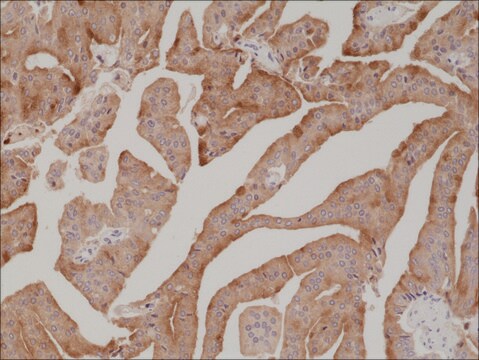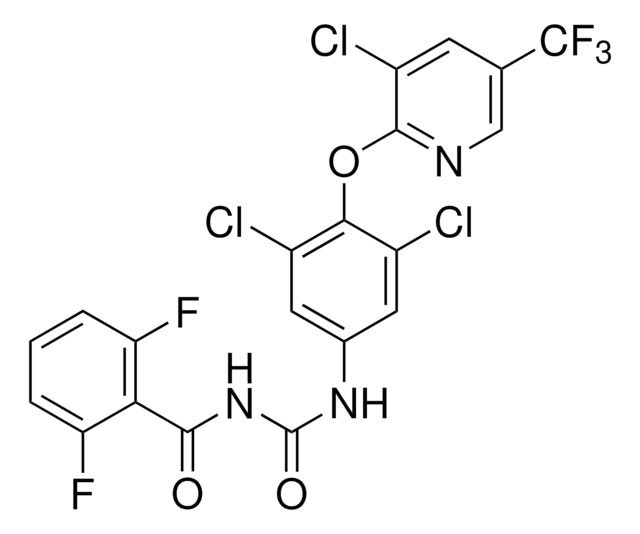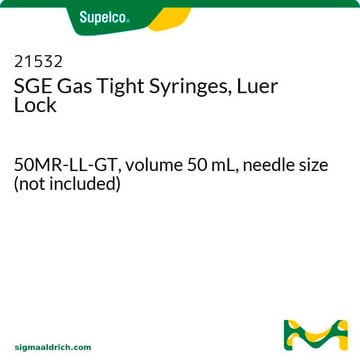324R-1
PSA (EP109) Rabbit Monoclonal Primary Antibody
Sinónimos:
APS, KLK2A1, P-30 antigen, gamma-seminoprotein, hK3, kallikrein-3, kallikrein-related peptidase 3, prostate specific antigen, semenogelase, seminin
About This Item
Productos recomendados
biological source
rabbit
Quality Level
100
500
conjugate
unconjugated
antibody form
Ig fraction of antiserum
antibody product type
primary antibodies
clone
EP109, monoclonal
description
For In Vitro Diagnostic Use in Select Regions (See Chart)
form
buffered aqueous solution
species reactivity
human
packaging
vial of 0.1 mL concentrate (324R-14)
vial of 0.5 mL concentrate (324R-15)
vial of 1.0 mL concentrate (324R-16)
vial of 1.0 mL pre-dilute ready-to-use (324R-17)
vial of 7.0 mL pre-dilute ready-to-use (324R-18)
manufacturer/tradename
Cell Marque™
concentration
0.1-0.5 μg/mL (predilute)
10-500 μg/mL (concentrate)
technique(s)
immunohistochemistry (formalin-fixed, paraffin-embedded sections): 1:100-1:500 (concentrated)
isotype
IgG
control
prostate carcinoma
shipped in
wet ice
storage temp.
2-8°C
visualization
cytoplasmic
Gene Information
human ... KLK3(354)
Categorías relacionadas
General description
Quality
European Union - IVD
Japan - RUO
United States - IVD
Caution
Physical form
Preparation Note
Note: This requires a keycode which can be found on your packaging or product label.
Download the latest released IFU
Note: This IFU may not apply to your specific product lot.
Other Notes
Legal Information
¿No encuentra el producto adecuado?
Pruebe nuestro Herramienta de selección de productos.
Storage Class
12 - Non Combustible Liquids
wgk_germany
WGK 2
flash_point_f
Not applicable
flash_point_c
Not applicable
Elija entre una de las versiones más recientes:
Certificados de análisis (COA)
¿No ve la versión correcta?
Si necesita una versión concreta, puede buscar un certificado específico por el número de lote.
¿Ya tiene este producto?
Encuentre la documentación para los productos que ha comprado recientemente en la Biblioteca de documentos.
Nuestro equipo de científicos tiene experiencia en todas las áreas de investigación: Ciencias de la vida, Ciencia de los materiales, Síntesis química, Cromatografía, Analítica y muchas otras.
Póngase en contacto con el Servicio técnico








